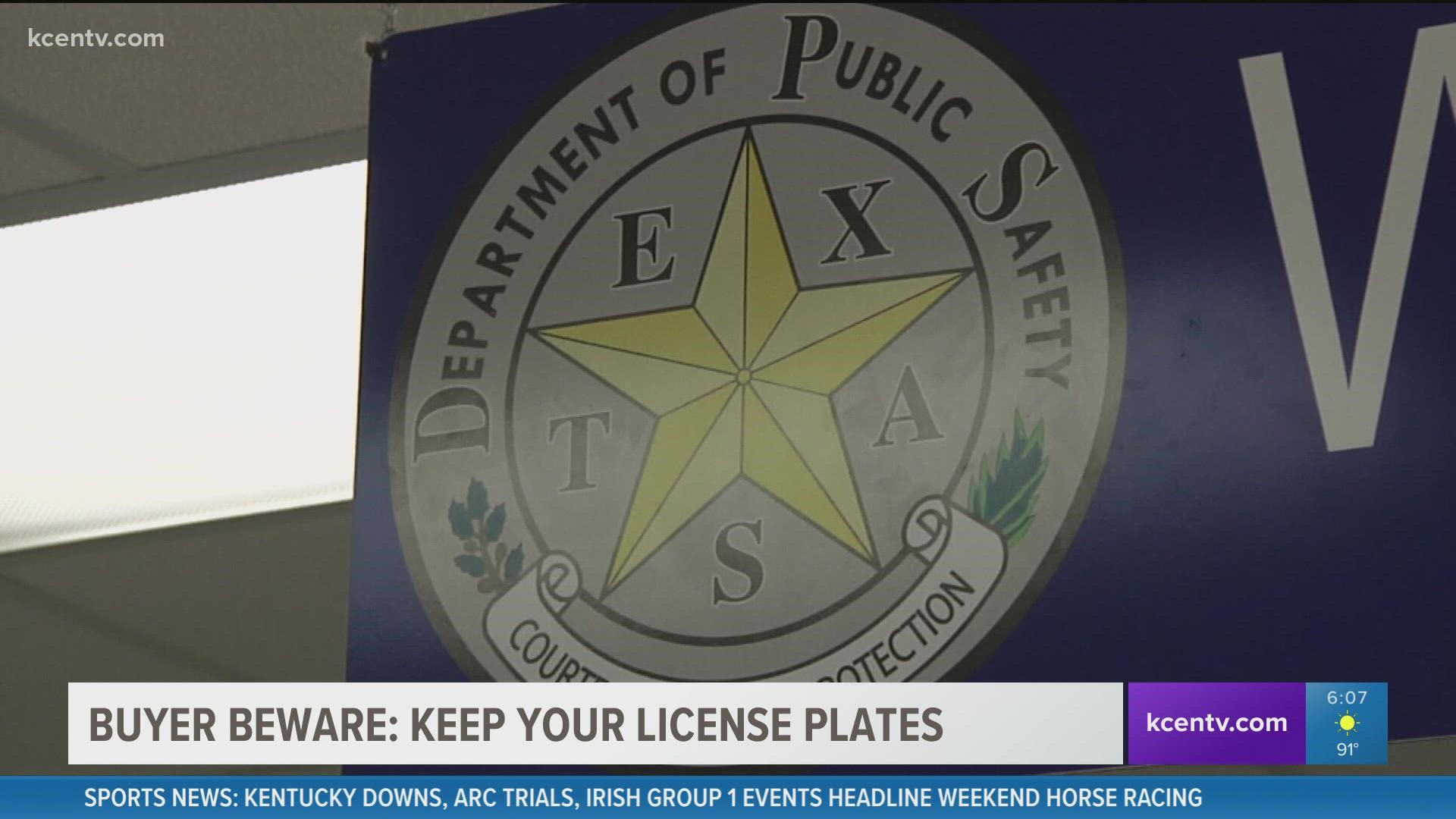TEMPLE, Texas — Christine Trask traded in her 2000 Pontiac minivan with Cory Simek and Platinum Autoplex in March. Trask said she signed over the title and was told the license plate would be taken care of.
"They told me that they would take care of the license plate and all the documentation and put temporary tags on my new car," Track said. "I dove off the lot thinking everything was fine."
Then, starting in May, Trask starting getting toll road bills. One of the bills showed a picture of the same license plate. The bills continued, and totaled more than $80.
Trask said she contacted Platinum Autoplex and was told they had been trying to reach the new owner of the vehicle about the plates but could not get him on the phone. Trask said Platinum Autoplex did have a new set of plates for the vehicle at their location.
When 6 News contacted Platinum Autoplex, they said to contact Cory Simek about the issue. Simek did not provide a comment for the story.
Trask said she was sure that the dealership make a mistake by not removing the plates. After 6 News contacted the Texas Department of Motor Vehicles, however, the DMV could not tell if any violations happened without taking a closer look.
DMV Spokesman Adam Shaivitz told 6 News, "a dealer is not required to title in the dealership’s name if you sell or trade-in your vehicle to a licensed motor vehicle dealer."
"The vehicle stays in the seller’s name until it is sold to an individual," Shaivitz said in the email. "Once the dealer sells the vehicle, the dealer has 30 days to transfer the title (or 45 days for dealer-financed sales). Without an investigation, it would not be possible for us to determine whether the dealer committed any violations. Consumers can file complaints against dealers here: https://txdmv.force.com/Complaint."
Shaivitz also told 6 News it is up to the customer to protect themselves when selling or trading a vehicle by providing a Texas Motor Vehicle Transfer Notification to the DMV.
"When consumers sell/trade-in a vehicle, they should submit a Vehicle Transfer Notification within 30 days to help protect themselves from liability for criminal or civil acts involving the vehicle and the person(s) or entity taking ownership of the vehicle. Even if it has been more than 30 days, buyers should submit that form to have a notation added to the vehicle record. If your viewer is receiving toll bills for the vehicle she traded-in, the first thing she should do after submitting a Vehicle Transfer Notification is contact the tolling authority to find out the steps for disputing a transaction. If she needs to provide verification that the vehicle was sold or traded-in prior to the date of the toll transaction, she may contact the Texas Department of Motor Vehicles for a confirmation email or submit a Request for Texas Motor Vehicle Information (Form VTR-275) to verify the month and year the vehicle was transferred."
Trask had already tracked down records showing the vehicle was purchased by someone else in April. Now she is left with the headache of disputing the toll road charges.
Texas Department of Public Safety Sgt. Bryan Washko told 6 News that drivers are often better off keeping their license plates to avoid toll road bills or ever larger issues.
"If you sell it (vehicle) to someone who commits a major crime, robs a bank, or robs a convince store, and they get that license plate. That comes back to you." Washko said.
Learn more about Texas state rules on license plates here.

